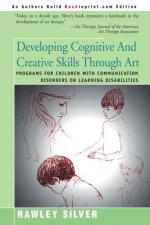|
This section contains 6,225 words (approx. 21 pages at 300 words per page) |

|
SOURCE: "Aristotle's Concept of Metaphor in Rhetoric," in Aristotle: The Classical Heritage of Rhetoric, edited by Keith V. Erickson, The Scarecrow Press, Inc., 1974, pp. 235-50.
In the following essay, Jordan studies Aristotle's use of metaphor in Rhetoric, asserting that the context of Aristotle's statements about metaphor indicates that his conception of metaphor was psychological in nature. Aristotle, Jordan notes, identifies "semantic and structural characteristics which affect reader and listener behavior."
Unlike much of Aristotle's rhetorical theory, his concept of metaphor has received relatively little attention from contemporary rhetorical theorists. Traditionally, rhetoricians have either overlooked or have not been concerned with Aristotle's psychological aspects of metaphor, as Kennedy observes that "none of the later Greek or Roman accounts seem to share Aristotle's philosophical concern with the psychological bases of figures of speech."1 Osborn's recent discussion of metaphor likewise denies a psychological consideration of Aristotle's concept of metaphor. According to...
|
This section contains 6,225 words (approx. 21 pages at 300 words per page) |

|


